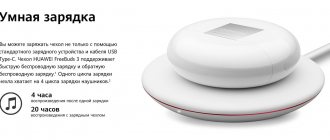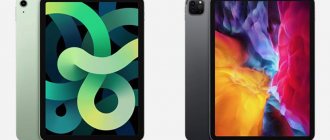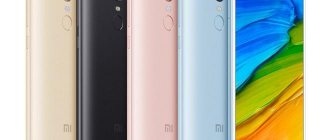Google Chrome is the most versatile
- Platforms: Windows, macOS, Linux, Android, iOS.
- Pros: works best with Google services, has a huge library of extensions, excellent synchronization between devices.
- Cons: takes up a lot of memory, does not respect your privacy very carefully, meager interface settings.
Chrome is the choice of almost 67% of Browser Market Share Internet users. The browser, as expected, is ideally compatible with all Google services and web applications, such as Google Drive and Google Docs.
Chrome's interface is perfectly clean and simple. There is nothing superfluous in it: all additional functions are implemented in the form of extensions that do anything.
But keep in mind that this is one of the most memory-hungry browsers. There is also no way to customize it: the user can only change the theme and mix extension icons in the panel at the top.
In addition, Chrome regularly sends information to Google about which sites you visit and what you search for, in order to then feed you targeted advertising.
Luckily, there are several alternatives to this browser, such as the open-source Chromium. Useful if you want to take advantage of Chrome without worrying about Google telemetry.
Download Chrome →
Conclusion
For a computer with limited RAM, we recommend Flash Peak Slimjet. The efficiency of the browser is explained by the fact that it stores only one tab in RAM at any given time - the active one. The remaining tabs are stored on the hard drive and are loaded when accessed, while the formerly active one is stored on the disk. This method saves memory, but noticeably slows down work.
IE and Edge browsers are recommended only for computers with at least 8GB of RAM, as they store all open tabs in RAM. If there is insufficient memory, they try to save some of the tabs to disk, but the developers poorly designed this feature, and the browsers freeze, stopping responding, after about the tenth open tab. A positive quality is the high speed of switching between tabs.
Browsers Mozilla, Opera, Chrome, Sea Monkey occupy an intermediate position in terms of required RAM and stability. The choice of any of them is dictated by the user’s habit and personal taste.
Mozilla Firefox - the most customizable and free
- Platforms: Windows, macOS, Linux, Android, iOS.
- Pros: very fast, plenty of extensions, customizable interface, open source, privacy.
- Cons: the update mechanism is not very conveniently implemented.
Firefox has much more customization options than Google's browser. You can freely add, remove and move any item on the toolbar or menu.
Firefox has a large library of extensions. Moreover, some of them have no analogues in Chrome. Unfortunately, old addons are not always compatible with new browser versions.
Firefox consumes system resources, in particular RAM, more modestly than Chrome.
Firefox strictly respects privacy and confidentiality. It has built-in tracking protection, and the browser is open source.
The downside is that the update process is not very well thought out. While the browser installs a new version, you can’t surf the Internet: you have to look at the window with a creeping indicator and wait. On fast devices with SSD this only takes a second, but on older machines it’s annoying.
Download Firefox →
Vivaldi - the most functional
- Platforms: Windows, macOS, Linux.
- Pros: a huge number of settings, works with Chrome extensions.
- Cons: The number of buttons and functions may confuse inexperienced users.
Vivaldi can easily be called the browser with the largest number of functions. There are notes in the side menu, mouse gestures to control the browser, preview of the contents of tabs, and grouping of these same tabs into stacks.
Vivaldi has a tool for taking screenshots with annotations. The browser can be controlled using the keyboard, and keyboard shortcuts can be easily reassigned.
We should also mention the ability to add your own sites to the Vivaldi sidebar. The browser also allows you to place the tab panel anywhere: at the top, bottom or side.
There are few disadvantages. The browser does not yet have its own extension store. There is also no built-in email client, which they only promise to do so far.
Download Vivaldi →
Opera - for those who need a VPN
- Platforms: Windows, macOS, Linux, Android, iOS.
- Pros: built-in VPN, ad blocker, convenient sidebar.
- Cons: few extensions, useless built-in crypto wallet.
Fast and functional browser based on Chrome. Opera has the ability to preload pages. The app remembers which sites you visit most often and starts loading the page in the background while you're typing the address.
The browser offers, among other things, a news viewing tool located in the sidebar. You can also place mobile versions of different sites there so you can always keep them at hand.
Opera's main feature is its built-in VPN.
It allows you to load pages faster and browse even blocked sites, while also increasing your privacy and blocking tracking and cryptocurrency mining scripts.
Opera has its own extension store. There are not very many of them, but this is not so scary: the browser supports Chrome add-ons.
Download Opera →
Opera
This is the first major player in the market to switch to the Chromium engine; this happened back in 2013 with the release of Opera 15. Users were surprised by this step, because the Opera engine at that time was extremely flexible and innovative.
The company was the first on the market to integrate an ad blocker, a VPN service, a cryptocurrency wallet and a floating web player window into its browser. In short, Opera is the most innovative browser on the market.
Microsoft Edge - Ideal for Tablet PCs
- Platforms: Windows, macOS, Android, iOS.
- Pros: handwriting input, modest battery consumption, built-in read-aloud.
- Cons: too few extensions, peculiar interface.
Edge is quite fast and, according to Microsoft, uses less battery than other browsers. It has a built-in reading mode that clears pages of anything unnecessary. Edge lets you save links for later and can be used as a tool for viewing e-books.
Obviously, Edge was aimed at tablets and devices with touch screens. Large buttons, large text in the menu, enlarged tab bar - the browser is easy to operate with your fingers.
Add to this the built-in handwriting of notes directly on top of web pages and the “Share” menu, through which you can send links to others from your computer via Bluetooth and Wi-Fi.
But the browser doesn't have enough extensions. And Edge's large buttons and controls take up a lot of screen real estate—not practical on large monitors.
#2 Yandex.Browser - a modern fast browser from Russian developers
Yandex Browser combines the speed and functionality of Chrome with many of its own customizable widgets. A distinctive feature is quick access to useful Yandex services, thanks to which it has gained wide popularity among Russian users.
It has a pleasant ergonomic interface, has a turbo mode and a built-in ad blocker, and supports mouse control gestures. There is a built-in translator - when you visit a page whose language does not match the one configured in the system, its translation is automatically offered through Yandex.Translator.
Pros:
- high speed;
- a large number of our own branded useful services;
- presence of turbo mode;
- cross-platform;
- safety;
- extension support;
- built-in ad blocker;
- attractive interface.
Minuses:
- with a large number of installed plugins, performance decreases;
- demanding on RAM.
Download Yandex Browser
Safari - for Mac users
- Platforms: macOS, iOS.
- Pros: looks beautiful, convenient reading mode, consumes few resources, ideally integrated into the Apple ecosystem.
- Cons: not intended for non-Apple devices, not enough settings, even fewer extensions.
The best browser for Apple devices is Safari. It's fast, convenient, seamlessly integrated into macOS, and simply beautiful, as befits an Apple app.
Safari is designed specifically to save MacBook battery power: on these devices, it is much more energy efficient than any other browser. Safari bookmarks, passwords, and other data syncs with your iPhone and iPad.
Safari has a Picture-in-Picture mode for watching videos in a small separate window. All buttons and elements on the toolbar can be dragged with the mouse in the configuration mode when you go.
However, if you, say, have a MacBook and an Android smartphone, Safari will not be able to sync bookmarks between them - install other browsers.
Tor Browser - for those who want to hide their online activities
- Platforms: Windows, macOS, Linux, Android.
- Pros: excellent privacy, opens blocked sites, based on Firefox.
- Cons: Slow connection over the Tor network.
If you have something to hide or you can’t access a blocked site, try the anonymous Tor Browser. It works on the principle of onion routing: your encrypted data while surfing passes through multiple Tor network servers, making it difficult to track.
The browser is based on Firefox, so everything that was said about that browser will be true for this one: interface, features, functions. But they carefully removed all telemetry from Tor Browser and installed extensions that protect user privacy.
The default search engine here is the anonymous DuckDuckGo; changing it to Google is not recommended.
Tor Browser is clearly not suitable for daily use. The Tor connection is quite slow. And there is no synchronization with mobile devices, for security reasons.
Download Tor Browser →
"Yandex.Browser" - for fans of the search engine of the same name
- Platforms: Windows, macOS, Linux, Android, iOS.
- Pros: tightly integrated with Yandex services, built-in voice assistant “Alice”.
- Cons: Bland, distracting animated backgrounds, too many unnecessary features.
Yandex.Browser is the brainchild of the popular Russian search engine, based on Chrome.
There is a “Turbo” function that speeds up opening pages and loading videos on slow connections, a special mode for low-power computers, and an ad blocker. You can watch videos in a separate small window in the “Picture in Picture” mode.
Yandex.Browser has a built-in voice assistant “Alice”. She can search the Internet, tell you the weather, read out fragments of text you specify, and joke (sometimes appropriately).
The browser has its own small library of extensions, but also supports add-ons from Chrome and Opera.
The downside is immediately obvious: the browser is crammed with functions that are not always needed. If you do not use Yandex services, this web browser is definitely not for you.
Download “Yandex.Browser” →
Review of lightweight browsers
On the Internet you can find more than a dozen web explorers that require minimal parameters. But are they all as good as their developers make them out to be? Below we will consider only the best options.
Maxthon Nitro
You've hardly heard of the Maxthon Nitro browser - a lightweight version of the classic version of Maxton. The developer was the Chinese, who took as a basis the Blink engine, which has low requirements for PC hardware. Essentially, it's lightweight Chromium, but with an even more stripped-down feature set. This feature made it possible to reduce the amount of RAM consumed to a minimum. According to many users, this is the fastest browser for a weak computer with many useful features, namely the ability to select a home page, quickly clear cache and history.
Features of Maxthon Nitro:
- a number of options and resources that burdened the computer the most have been removed (this is why the browser is lighter);
- smart caching of pages on the Internet has appeared, namely automatic memorization of the page;
- improved design (all unnecessary elements removed).
The result is the lightest browser, which is recommended for many owners of weak PCs. Alternatively, you can install two versions - regular and “shortened”. The first will be used for the most complex tasks, and the second - during the main time.
By the way, if you are used to using the seventh OS, then on our website there is a selection of the best browsers for Windows 7 especially for you.
Pale Moon
If we consider the lightest browsers for a weak computer, it’s worth mentioning Pale Moon (you’ve also probably never heard of it before). This is a high-quality product created for older PCs and runs successfully even on an Athlon 64 or Pentium 4. Essentially, it is an optimized version of Mozilla Firefox. The developers were able to remove unnecessary elements and speed up work by almost 25%. At the same time, the explorer is completely lightweight and compatible with the main Firefox browser. An additional advantage of the easiest guide is support for the Russian language, which is important for residents from the Russian Federation and CIS countries.
The web explorer interface successfully combines modern and classic elements. Application practice shows fast switching between tabs, high video viewing speed and minimal load. This is, if not the lightest browser, then certainly one of the best.
Otter Brouser
The Otter Brouser web browser is based on Opera v. 12 and has many advantages over its “big brother” in terms of speed. Essentially, this is a 100% copy of Opera, but redesigned as much as possible to minimize the load on the PC. The main feature of the browser is that it is lightweight and does not create separate processes for different tabs. All tasks are implemented within a single process, which helps reduce the load on RAM.
According to many users, this is the best browser for weak PCs. Its features include:
- many options for tabs - on the sides, bottom, top, the ability to unpin and pin;
- lightest design;
- thoughtful search bar;
- session and download managers;
- setting up search engines;
- simple design with nothing superfluous;
- the appearance of small tabs when you hover over them with the mouse;
- option to change page scale, etc.
This is a convenient web browser in all respects, which does not require large resources and can easily work on weak PCs.
K-Meleon
K-Meleon is considered one of the very first projects. This browser appeared during the years when Mozilla Firefox was the most popular among web browsers. Despite some “antiquity”, the browser can be included in the list of the easiest conductors. It is based on the Gesco engine, which is not demanding on resources and is characterized by high speed. The browser is free to use, and its source code is available to everyone. Actually, K-Meleon was developed for 32-bit Windows OS.
The lightweight and unobtrusive interface of the web explorer cannot be called modern, but the developers did not set such a goal. On the contrary, they reduced the functionality as much as possible and added a number of important options that are found in other browsers. Because of this, the interface is cluttered with many different buttons, which often confuse newbies.
SlimBrowser
The SlimBrowser browser is positioned as the lightest and fastest browser for Windows 10 and other operating systems. According to the manufacturers, the page viewing speed is 10 times faster than in conventional explorers. In addition, time wasted on using the mouse is reduced thanks to the introduction of artificial intelligence. The program does not provide plugins, but this does not prevent it from performing the necessary functions. In addition, the user can manage usernames, safely remove traces of Internet activity, block unnecessary ads, and perform other tasks.
This browser is great for netbooks and older PCs. Its features:
- Automatic entry of data into online accounts.
- The fastest download manager (12x speed increase).
- Integration with Facebook with one click.
- Quickly upload photos and frame photos.
- Ease of downloading YouTube videos at maximum speed.
- Simultaneously opening a group of sites in batch form.
- Translation of text and pages (if necessary).
- Blocking ads and pop-ups.
- Weather forecast display.
- Easy integration with many services, etc.
According to many users, this is the fastest browser for weak computers, which retains wide functionality and has a modern interface.
Midori
The Midori developers aimed to create the simplest and lightest web explorer designed for PCs with weak resources. Application practice has shown that the program takes a minimum of resources and weighs only 37 MB. For example, the same Firefox needs 200 Megabytes. Agree, the difference is striking.
The Midori browser supports the latest technologies, including CSS3 and HTML5. It is created on the basis of an advanced engine and incorporates the modern Webkit rendering engine, which ensures high speed of opening pages. Unlike Firefox and Google Chrome, there are not a large number of extensions, but there are several important add-ons that improve functionality. Before downloading the fastest browser for a weak laptop, you need to take into account an important nuance - the Russian language is not supported here.











